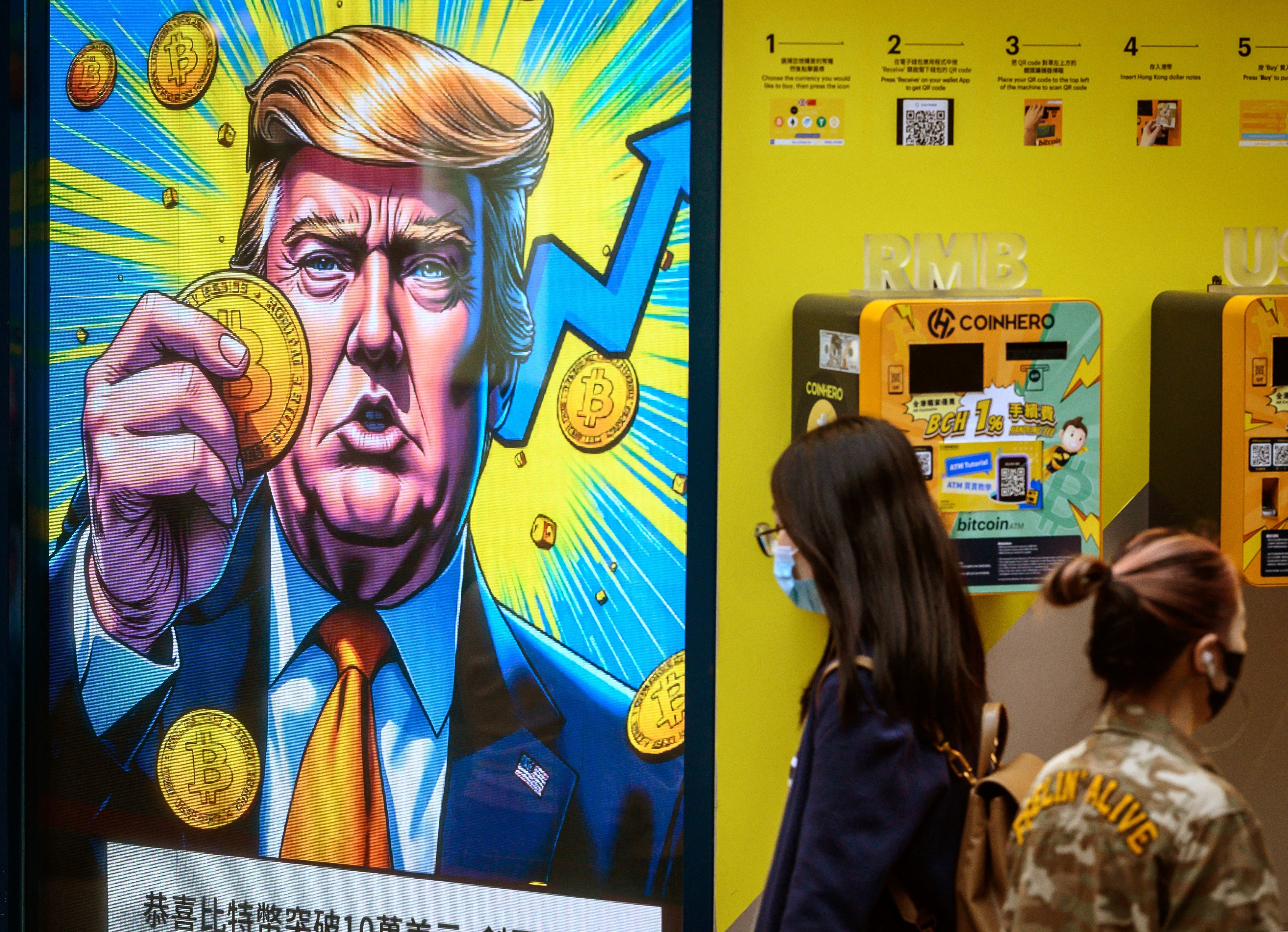The Trump administration has pulled Biden-era guidance from the Department of Labor that strongly advised employers against offering cryptocurrency in 401(k) retirement plans for their workers.
Labor Secretary Lori Chavez-DeRemer said the policy was an attempt by the previous administration “to put their thumb on the scale” against cryptocurrency investments.
“We’re rolling back this overreach and making it clear that investment decisions should be made by fiduciaries, not DC bureaucrats,” she said in a statement.
The Biden administration’s guidance advised fiduciaries to “exercise extreme care” before adding cryptocurrency investments to the menu of 401(k) options offered to employees.
It warned that failure to do so could expose them to liability for losses but did not forbid crypto investments.
The change comes as Donald Trump’s administration and his family have enthusiastically embraced cryptocurrency. The president even launched his own $TRUMP meme coin, and his sons and Vice President JD Vance spoke at this week’s Bitcoin 2025 Conference in Las Vegas.
“I’m here today to say loud and clear, with President Trump, crypto finally has a champion and an ally in the White House,” Vance told attendees.

Bitcoin has surged 60 percent since Trump’s re-election in November, reaching current highs of $111,000.
No new advice was given on crypto; instead, the DOL is reverting to having a “neutral approach” to such assets.
Stephen Hall, legal director and securities specialist at Better Markets, gave a scathing analysis of the decision in emailed comments: “Today is another flagrant example of the Trump Administration putting crypto profits ahead of the economic stability and security of Americans.”
He continued: “The Department of Labor (DOL), in rescinding 2022 guidance warning of the very real risks of dumping crypto into tax-exempt retirement plans like 401(k)s, has signaled that it’s open season for the lawless crypto industry to push their volatile assets into the preferred investment vehicle of tens of millions of workers.”
Hall argues that the Biden-era guidance from early 2022, “likely saved millions of Americans from suffering grievous losses in their retirement accounts when the industry crashed later that year during the Crypto Winter.”
The collapse of Do Kwon’s stablecoin project, Terra Luna, and the bankruptcies of FTX, Celsius, Voyager Digital, and BlockFi created a domino effect, sending crypto prices crashing and resulting in billions of dollars of customer funds frozen as courts sorted through the wreckage.
Knut Rostad, president of the Institute for the Fiduciary Standard, an advocacy group, told CNBC that the Trump administration’s move was a “big mistake.”
“As a huge general rule, crypto doesn’t belong in a 401(k), period, end of sentence,” he said.
Rescinding the guidance “sends the wrong message by eliminating a yellow caution light and putting in place a green light” for employers and 401(k) investors to use crypto, he added.
While rescinding guidance on crypto for retirement funds means it can be treated like any other financial asset, concerns persist that crypto is still relatively new, volatile, and not as well understood as other traditional assets.
“Crypto is such a new thing and there’s no regulation or protection, even a reasonable understanding of it,” Philip Chao, a certified financial planner and retirement plan investment consultant, told CNBC. “And there still isn’t enough.”

The regulatory and enforcement framework for crypto has significantly decreased in just the first few months of the Trump Administration.
Both the Securities and Exchange Commission and the Department of Justice are adopting a more lenient approach to the industry.
The removal of the DOL guidance could mean increased risks for retirees if pension plan managers choose to opt for crypto assets rather than continuing to adhere to the earlier advice.
However, those same pension plan managers still have a fiduciary duty and legal responsibility to put the best interests of 401(k) investors first when considering which investments to offer or not.





